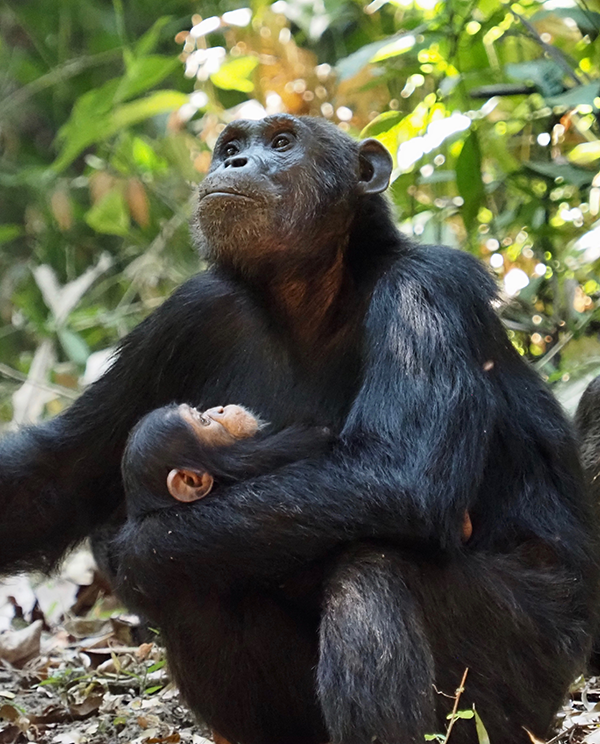Primate evolutionary ecology
Primates exhibit remarkable diversity in behaviour and ecology, including varying social organizations and habitat preferences. This diversity provides an excellent opportunity for testing hypotheses about the evolution of behavioural and ecological strategies. Due to their close phylogenetic relationship to humans, nonhuman primates also serve as valuable referential models for gaining insights into our own evolutionary history.
Our research focuses on three major themes: (1) primate adaptations to ecologically harsh environments, (2) the evolution of complex primate sociality and (3) the effects of nutrition on human life history traits.
Regarding the first theme, we are particularly interested in how certain primates cope with the challenges of living in marginal montane environments, both in temperate and tropical regions. We explore a range of adaptive strategies that allow primates to thrive in resource-poor, climatically extreme environments. These strategies include physiological mechanisms for maintaining energy balance and thermoneutrality, behavioural thermoregulation, and adjustments in energy expenditure and intake through changes in travel patterns and diet. These questions are addressed through field research on montane-dwelling chimpanzees in Rwanda and snub-nosed monkeys in China.
For the second theme, we investigate the evolutionary causes and consequences of meta-group social organization (the formation of tolerant relationships between distinct social groups) and multilevel societies (the organization of core social units into larger collectives with multiple, nested social levels). Through observational fieldwork on model species, particularly snub-nosed monkeys, and comparative phylogenetic analyses, we explore the structure and function of inter-group dynamics and multilevel sociality. Additionally, we examine the cognitive consequences of between-group interactions, study how sexual selection operates in these social environments, and identify evolutionary links between complex social structures and adaptations to extreme environmental conditions. Lastly, we also apply a behavioural ecology approach to study out-group tolerance and cooperation in humans.
In humans, a universal and cross-cultural feature is the perception of sexual dimorphism in face shape. Masculinity in men’s faces is perceived as attractive. For the third theme we are studying the biological basis of preferences for masculinity in men’s faces, and specifically the cues to health that masculine features might provide. We are using a longitudinal data base, The Raine Study, to look at the effects of macronutrient consumption during development on adult face shape, and on important health variables including immune function and fertility.


